Released: 10th July 2000
Writers: Diane Warren
Peak position: #19
Chart run: 19-30-35-40-48-61
Billboard Hot 100 chart run: 50-39-30-28-21-19-20-17-17-17-17-3-3-7-10-17-25-29-29-40-43-50
An unlikely collaboration between Bugs Bunny and Michael Jordan helped lay the groundwork for the third single from Christina Aguilera’s debut album, proving that hit singles really can come from anywhere.
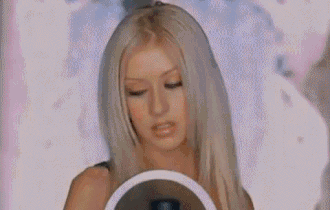
I Turn To You ended up with Christina Aguilera – at least in part – because songwriter Diane Warren wanted to prove the track could be a success. It was initially recorded by the R&B group All-4-One for the 1996 movie Space Jam. The soundtrack had been a phenomenal success, selling six million copies in America and yielding three top ten hits on the Billboard Hot 100. I Turn To You was lined up to be the sixth(!) single lifted from the album, and All-4-One had even recorded a music video. Alas, Atlantic Records eventually decided not to go ahead with the release, deeming that there weren’t many more sales to be wrung from the soundtrack. Diane Warren was livid and even offered to fund the single herself. However, Atlantic would not budge, and her parting shot was a promise that she would find an artist to realise the potential of her song and prove the label had made the wrong choice.
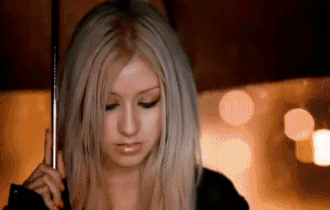
That opportunity came several years later when Diane Warren wrote Somebody’s Somebody for Christina Aguilera’s debut album. Seizing the opportunity, she suggested that I Turn To You would also be a good fit and not only did the track end up being recorded, but it was also eventually picked to be the third single. On paper, a big-voiced teen singer tackling a schmaltzy ballad should have been a safe choice. Ironically it actually ended up being a risky move because it flew in the face of the way Christina Aguilera had been marketed to this point. There was little doubt that she was a capable balladeer (certainly not for those who’d already purchased the album). Still, having been positioned as a singer who dealt in street-smart pop/R&B, I Turn To You was a style of music perceived as – in the UK, at least – somewhat clichéd and most definitely not cool.
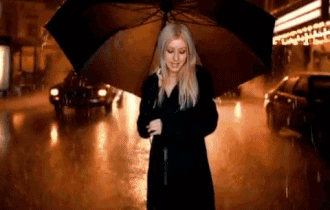
Fundamentally, for people who aren’t keen on gloopy power-ballads, then there’s very little here that’s going to change that opinion. However, for those who are, I Turn To You is a wholly satisfying effort. The song was critically divisive, although the main complaint was that it sounded like a formulaic remnant from the mid-‘90s…which is precisely what it was. Any changes from the original are minor and serve only to give a crisper, cleaner update to the production. Inevitably, the significant difference here is how I Turn To You is performed. It serves as a moment for Christina Aguilera to follow through on the waves she’d made when she recorded Reflection for Mulan, which ultimately led to her landing a record deal in the first place.
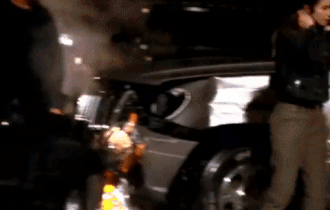
The song showcases the range of her vocals, and while there are moments of showboating, it all feels entirely purposeful. This is not a song that was created to be performed modestly; thus, it very much benefits from the more-is-more approach. Yet, it still manages to find moments of softness between the money notes. The second verse is utterly gorgeous thanks to both the quality of Diane Warren’s songwriting and the control that Christina Aguilera exhibits over her voice: “When I lose the will to wi-i-i-in, I just reach for you and I can reach the sky again, I can do-o-o anythi-i-i-ing…”. The sweetness and purity of her tone is utterly gorgeous. Furthermore, it remains quite specific to this album and a product of the era in which the song was released. This isn’t something we often heard from Christina Aguilera once she seized creative control of her career.

It scarcely matters that I Turn To You’s lyrics are entirely over-familiar because they’re woven into such gratifying hooks that wrap around you like a warm, reassuring hug from the not-so-distant past, like the build-up to the chorus: “And when I need a friend, you’re always on my side, giving me faith, taking me through the night”. Everything hits the mark expected of a major movie power-ballad, even if Space Jam itself was no longer a part of the equation. That inevitably means the first half of the song primarily exists to set up the finale, and it’s well worth the wait.

There’s a switch up during the middle-eight: “For someone to LEAN ON…” – complete with a dramatic ‘whoosh’ effect – and you know precisely what’s coming. The notes become more dramatic and drawn out: “For a heart I can rely on through any-THI-I-I-NG, for the O-O-O-ONE…WHO-OOH-OOH…”, there’s a dramatic drop-out in the music: “I can RU-UH-UH-UN TO-OOH-HO-OH-I…” and the key-change is unleashed: “TURN TO YO-O-O-O-O-OH-OW-OH-YEAH”. It might have reinforced every stereotype being thrown in I Turn To You‘s direction; however, the song was already so far down that path, there was little point in serving anything other than the most overblown climactic moment possible. It’s executed with perfection; the vocal runs during the final choruses are flawless, and the entire package is a towering behemoth of glossy mid-‘90s balladry. It’s so, so good.

Undeterred by the fact that Christina Aguilera’s version of I Turn To You didn’t have a movie attached to it, the music video does the next best thing and essentially invents one. The plot (for want of a better word) involves a young woman having a car accident – not a major one, but enough to dent her vehicle – while her mother waits anxiously at home. After a frantic phone call, she rushes to be with her daughter and consoles her over a hot drink because who else would she turn to in a moment of need. Is this whole sub-plot playing out alongside Christina Aguilera necessary? Absolutely not. But then, you could say that about much of I Turn To You. It all adds to the indulgent pomp of the piece, and we wouldn’t have it any other way.
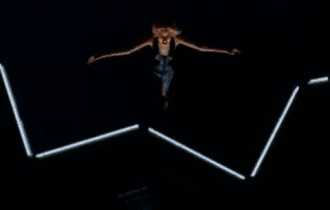
Aside from the Dawson’s Creek-esque melodrama, there are some terrific sequences in the video. The shots of Christina Aguilera atop a building in the middle of the night, surrounded by the city lights and skyscrapers, underline the epic scale of the track. With an occasional hint of red sky in the distance, they are visually stunning. While it was all achieved through the magic of green screen (in retrospect, it makes sense that RCA weren’t about to stick their major signing on the edge of a building while cameras zoomed around her), even now, they look impressively authentic. Elsewhere, Christina Aguilera is seen wandering through the streets while a torrential rainstorm pours from the skies; her umbrella is a literal “shield from the storm” because bubblegum pop was nothing if not unwaveringly faithful to its source material. The vivid colour grading applied to many videos at the time is also present throughout. It’s most noticeably striking in the shots where Christina Aguilera is performing the song from what appears to be a recording studio in heaven, judging by the blinding, ethereal whiteness surrounding her.
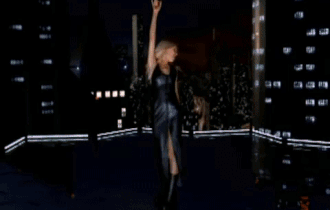
While I Turn To You may have been rooted in the past, the music video very much belongs to the turn-of-the-century. This is teen pop 101; the production values are through the roof, and it’s finished with the shiny veneer befitting of a Hollywood blockbuster. That collision of two chart eras goes some way to explaining why the commercial reaction to I Turn To You was decidedly mixed. In America, the track peaked at #3 on the Billboard Hot 100. While that did make it the only single from Christina Aguilera’s debut album not to top the chart, it was nevertheless part of an extraordinary run of hits that opened her career. From a singles perspective, she had the edge on Britney Spears, whose record label opted to rely on airplay to drive sales towards her album. Given the origins of I Turn To You, it was little surprise that the song fared well in America. But that conversely made it a harder sell in other territories, including the UK, where it peaked at #19. The market for balladry of this ilk had never been quite so clearly defined here, and not even the momentum that Christina Aguilera had off the back of her two previous singles could overcome that.
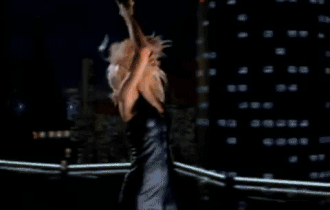
So, was it a misstep to release I Turn To You in the UK? Maybe. A release of So Emotional, Somebody’s Somebody, When You Put Your Hands On Me or even Love Will Find A Way for territories outside of America might have led to been more warmly received. Suddenly, there was a chasm between Christina Aguilera and Britney Spears, who had – until this point – appeared to be keeping pace with one another as the leaders of the pack. But in the long-term, I Turn To You didn’t cause any lasting damage; it was still a massive hit in the one place that it really needed to be and while Diane Warren didn’t quite get her chart-topping single, she was more than validated in her championing of the song as one with huge potential.



